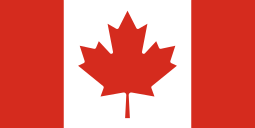Academic Qualifications
For Undergraduate (UG) Programs
- Completed SEE + 10+2 (or equivalent)
- Minimum GPA or percentage as required by German universities (typically 2.5+ GPA or 60%+)
- Gap years accepted: Up to 2 years
- Backlogs: Accepted in moderation
 For Postgraduate (PG) Programs
For Postgraduate (PG) Programs
- Recognized Bachelor’s degree (minimum GPA generally 2.5 or above, or 60%+)
- Gap years accepted: Up to 5 years
- Backlogs: Considered on a case-by-case basis
Tip box:
“Some German universities accept a few backlogs – talk to our counsellors to find the right options for you.”
English Language Proficiency
To study in Germany, Nepali students must demonstrate English proficiency through standardized tests. Requirements vary by program and university, but the following table provides general guidelines:
| Test | Undergraduate (UG) | Postgraduate (PG) |
| IELTS | 6.0 – 6.5 overall | 6.5 – 7.5 overall |
| TOEFL iBT | 80 – 90 | 90 – 100 |
| PTE Academic | 50 – 60 | 55 – 65 |
| Duolingo | 95 – 105 | 105 – 120 |
Note: Specific score requirements can vary by institution and program. It’s essential to check the exact requirements of your chosen university.
 Preferred Test Options & Goreto’s Support
Preferred Test Options & Goreto’s Support
- IELTS and TOEFL are widely accepted across German universities.
- PTE Academic and Duolingo English Test are increasingly recognized, offering flexible testing options.
- Goreto Education Consultancy provides comprehensive test preparation support, including:
- Personalized coaching sessions.
- Access to practice materials and mock tests.
- Guidance on test selection based on your target universities and programs.
Standardized Tests
While many German universities do not mandate standardized tests for admission, certain programs and institutions may require or recommend them. Understanding these requirements is crucial for a successful application.
Undergraduate Programs
- SAT: Not commonly required. However, some universities may consider SAT scores, especially for students from education systems that do not align directly with the German Abitur.
Postgraduate Programs
- GRE: Not mandatory for all programs. However, a good GRE score can enhance your application, particularly for technical and engineering courses. A recommended GRE score is upward of 315.
GMAT: Typically required for MBA and other management-related programs. A competitive GMAT score is generally above 600.
Test Waivers
Some universities may offer test waivers under specific circumstances, such as:
- Relevant work experience.
- Strong academic performance in previous studies.
- Universities’ discretion during exceptional situations (e.g., COVID-19 pandemic).
It’s essential to check the specific requirements of each university and program.
Financial Eligibility
Germany is renowned for its affordable education system, especially at public universities. However, understanding the financial requirements is crucial for Nepali students planning to study in Germany.
Tuition Fees
| Program Level | Public Universities | Private Universities |
| Undergraduate (UG) | Typically free; semester fees of €100–€300 | Up to €26,000/year |
| Postgraduate (PG) | Generally free; semester fees apply | Up to €40,000/year |
Note: Some states, like Baden-Württemberg, charge non-EU students €1,500 per semester at public universities.
 Living Costs
Living Costs
| Expense Category | Estimated Monthly Cost (€) | Estimated Annual Cost (€) |
| Accommodation | 300 – 500 | 3,600 – 6,000 |
| Food | 150 – 250 | 1,800 – 3,000 |
| Transportation | 100 – 150 | 1,200 – 1,800 |
| Health Insurance | 80 – 120 | 960 – 1,440 |
| Miscellaneous | 100 – 200 | 1,200 – 2,400 |
| Total | 730 – 1,220 | 8,760 – 14,640 |
Average monthly living expenses for students are approximately €850 – €1,200.
Proof of Funds for Visa
To obtain a German student visa, you must demonstrate sufficient financial resources. As of 2025, the required amount is:
- €11,904 per year (equivalent to €992 per month)
This amount is typically deposited into a blocked account before applying for the visa.
Visa Requirements
Step-by-Step Guide to Obtaining a German Student Visa
- Secure University Admission
- Obtain an acceptance letter from a recognized German university.
- Financial Proof
- Demonstrate sufficient funds to cover tuition and living expenses.
- Health Insurance
- Provide proof of valid health insurance coverage.
- Visa Application
- Submit your visa application at the German Embassy or Consulate.
- Attend Visa Interview
- Participate in an interview, if required, and provide all necessary documents.
- Wait for Processing
- Wait for your visa application to be processed. Processing times can vary.
- Receive Visa
- Upon approval, receive your student visa and prepare for your journey to Germany.
Common Reasons for Visa Denial
- Insufficient Financial Proof
- Failure to demonstrate adequate funds for tuition and living expenses.
- Incomplete Documentation
- Missing or incomplete required documents during the application process.
- Unclear Intent to Return
- Lack of evidence showing intent to return to Nepal after studies.
- Poor Academic Background
- Academic qualifications not meeting the requirements of the chosen program.
- Health Insurance Issues
- Inadequate or invalid health insurance coverage.
Documentation Checklist
To apply for a German student visa from Nepal, you must submit the following documents:
Personal Documents
- Valid Passport: Minimum validity of 12 months.
- Biometric Passport Photo: Recent photo (not older than six months).
- Citizenship Certificate: Original and one copy.
- Birth Certificate: Original and one copy.
- Signed Declaration: Confirming the truthfulness of the information provided.
Academic & Admission Documents
- University Admission Letter: Confirmation of acceptance into a recognized German university.
- School Leaving Certificate: Original and one copy.
- Higher Secondary Education Board Certificate: Original and one copy.
- Bachelor’s Degree Certificate: If applicable, original and one copy.
- Academic Transcripts: Original and one copy.
- APS Certificate: Mandatory for degrees obtained from India or China, unless you have a German or EU scholarship.
Language Proficiency
- English Language Proficiency: TOEFL, IELTS, or equivalent, if the program is in English.
- German Language Proficiency: Certificates from recognized institutions like Goethe Center Kathmandu or VHS Bhaktapur, if the program is in German.
Financial Proof
- Blocked Account Confirmation: Minimum €11,904 for one year of living expenses.
- Scholarship Confirmation: If applicable.
- Formal Sponsorship Letter: From a sponsor residing in Germany, if applicable.
- Bank Statements: Recent statements showing sufficient funds.
- Income Proof: Employment letters or business registration documents, if applicable.
Health Insurance
- Travel Health Insurance: Valid for entry into Germany until enrollment.
- Student Health Insurance: Coverage valid in Germany, typically obtained after arrival.
Additional Documents
- Curriculum Vitae (CV): Detailed academic and professional background.
- Letter of Motivation: Explaining your reasons for studying in Germany and your career goals.
- Visa Fee Payment Proof: Receipt of the visa application fee payment.
Please note: All documents must be submitted in German or English. Originals and copies are required. Ensure that all documents are complete and accurate to avoid delays in the visa application process.
Scholarships & Financial Aid
Germany offers a multitude of scholarship opportunities for Nepali students, encompassing merit-based, need-based, and university-specific options. These scholarships aim to alleviate financial burdens and support academic excellence.
Merit-Based Scholarships
- DAAD Scholarships: The German Academic Exchange Service (DAAD) provides fully or partially funded scholarships for international students. These scholarships are available for various degree programs and are awarded based on academic excellence. Eligibility criteria include a strong academic record and proficiency in the language of instruction.
- Deutschlandstipendium: This merit-based scholarship offers €300 per month to highly talented students enrolled at German universities. It is available to both domestic and international students and is awarded irrespective of nationality or personal income.
Need-Based Scholarships
- BAföG: The Federal Training Assistance Act (BAföG) provides financial support to students based on their financial need. While primarily for German students, international students may also be eligible under certain conditions. Eligibility is determined based on income and assets of the student and their parents.
- University-Specific Scholarships: Many German universities offer need-based scholarships to international students. These scholarships are designed to support students who demonstrate financial need and are enrolled in degree programs at the university.
University-Specific Scholarships
- Heidelberg University Scholarships: Heidelberg University offers scholarships specifically for international students, including Nepali students. These scholarships are often merit-based and may cover part or all of tuition fees and living expenses.
- Technical University of Munich (TUM) Scholarships: TUM provides various scholarships for international students, including those from Nepal. These scholarships are aimed at supporting students with outstanding academic achievements.
- University of Mannheim Scholarships: The University of Mannheim offers scholarships for international students to support their studies and living expenses. Eligibility criteria include academic excellence and financial need.
Goreto’s Assistance
At Goreto Education Consultancy, we assist Nepali students in identifying and applying for suitable scholarships to study in Germany. Our services include:
- Personalized Scholarship Guidance: We help you identify scholarships that align with your academic profile and financial needs.
- Application Support: Assistance in preparing and submitting scholarship applications, including guidance on required documents and deadlines.
Visa and Financial Planning: Support in understanding visa requirements and financial planning to ensure a smooth study experience in Germany.
Application Deadlines & Intakes
Germany offers two primary academic intakes:
- Winter Semester (WS): Begins in September/October and concludes in February/March. This is the main intake, with the majority of programs available.
- Summer Semester (SS): Starts in March/April and ends in July/August. Fewer programs are offered during this intake.
Application Deadlines
- Winter Semester (WS): Applications typically open in May and close by July 15.
- Summer Semester (SS): Applications usually open in December and close by January 15.
Note: Some universities may have earlier or later deadlines, especially for certain programs. Always check the specific deadlines for your chosen university and program.
Recommended Timeline for Nepali Students
To ensure a smooth application process, consider the following timeline:
- 12–18 months before intake: Research universities and programs.
- 10–12 months before intake: Prepare for and take required language proficiency tests (e.g., IELTS, TOEFL, TestDaF).
- 8–10 months before intake: Gather necessary documents (e.g., academic transcripts, recommendation letters, CV).
- 6–8 months before intake: Submit applications to universities.
- 3–4 months before intake: Apply for a student visa.
- 1–2 months before intake: Finalize accommodation and travel arrangements.
FAQ Section
Can I study in Germany without IELTS or TOEFL?
Yes, many universities in Germany offer programs in English that do not require IELTS or TOEFL scores. However, proof of English proficiency through other means, such as previous education in English or other recognized certificates, may be accepted. It’s essential to check the specific requirements of each university and program.
What is the minimum GPA to study in Germany from Nepal?
The minimum GPA requirement varies by university and program. Generally, a GPA of 2.5 or higher on the German grading scale (which is equivalent to approximately 50%–60% in Nepali grading) is considered competitive for undergraduate programs. For postgraduate programs, a higher GPA may be required. It’s advisable to consult the specific university’s admission criteria for detailed information.
Can I apply with a study gap?
Yes, applying with a study gap is possible. However, you must provide a valid explanation for the gap, such as work experience, internships, or personal development activities. Universities may assess the relevance and productivity of the gap period during the admission process.
What are the chances of getting a visa?
The chances of obtaining a German student visa are generally high if you meet all the eligibility criteria and provide complete and accurate documentation. Key factors influencing visa approval include:
- Valid University Admission: Proof of acceptance into a recognized German university.
- Financial Proof: Demonstrating sufficient funds to cover living expenses and tuition fees.
- Language Proficiency: Depending on the program, proof of proficiency in English or German.
- Complete Documentation: Submitting all required documents accurately and on time.
It’s important to note that visa approval is not guaranteed and is subject to the discretion of the German Embassy.
For personalized guidance and assistance with your application process, consider consulting with Goreto Education Consultancy. They offer expert support in navigating the complexities of studying abroad.
Click here to ask your question!
Get Free Consultation





